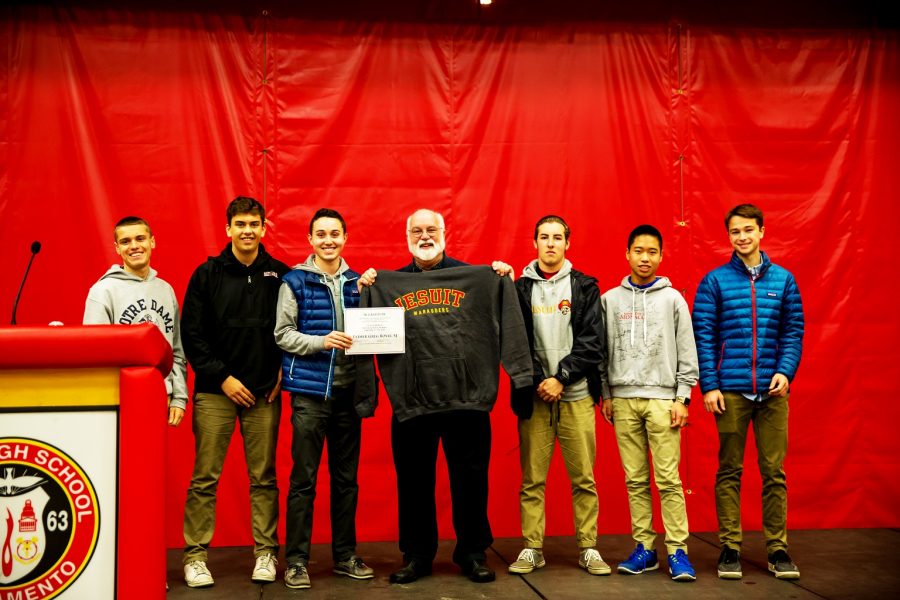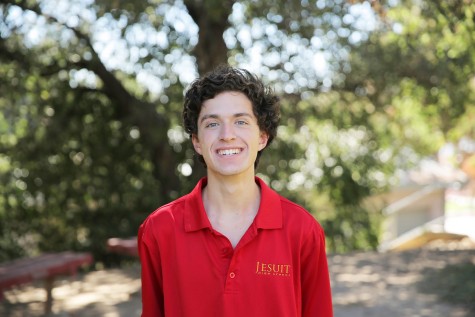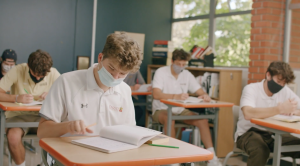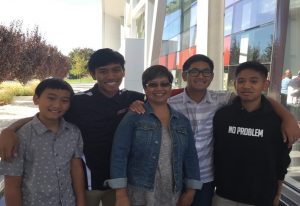Restoration and Respect
February 9, 2017
From Jan. 17 to 20, Jesuit High School held its tenth annual Social Justice Summit, this year focusing on the topic of the American penal system. For every period of the four day school week, students were encouraged to come with their classes to the seminars held in the Chapel of the North American Martyrs.
The Social Justice Summits are a school tradition that started with the purpose of fulfilling Jesuit’s philosophy of keeping its students socially aware.
Every year, the Social Justice Summit tackles a new topic in order to continue informing students and faculty alike.
Previous years focused on subjects such as homelessness, mental illness, and the environment. This year’s theme, the justice system in America, was inspired by looking more closely at our system of justice and asking deeper questions about our recidivism rates, looking at the demographics of who is in our prisons and ultimately wondering if the system is in need of reform.
“In recent news there has been much reporting on tensions between police officers and some of the communities they are trying to serve. What is at the heart of that tension? We also are in an era of our prisons being overcrowded, might we ask the question if true rehabilitation is taking place inside our prisons for the vast majority of those returning to our communities? Another important factor to consider are the victims. Does our current system hear their needs and address their healing?” asked Mrs. Gina Anderson, Organizer of the Social Justice Summit. “Are we doing our utmost for all communities [so] that they are achieving their utmost level of thriving?Can we fathom being a community of giving people second chances?”
The different seminars featured a wide variety of speakers, including a retired police officer, social workers, and individuals who had been through the prison system. Together they tied together a multifaceted narrative about the impact criminal justice could have on the life of an offender, and the factors that might impact an individual’s chances of interaction with the penal system, such as race, class, and neighborhood.
“I think more than anything with these summits, if you raise a social issue, it’s just going: Why? Why? Why? and pulling back the layers of ‘why is that?’” Mrs. Anderson said .
Through the speakers’ many stories and reflections, an alternative to the current system of retributive justice was suggested in the form of “restorative justice”. The idea would be to have the victims of wrongdoing to in some way be involved with the judgement of the offender, so that the punishment might actually serve to amend whatever wrongdoing that occurred. Such a concept of restorative justice depends on people’s willingness to admit their mistakes and reach out, in hopes of forming bonds and strengthening a community.
Because of the large number of controversial topics broached in the seminars, ranging from the Black Lives Matter movement to police brutality and privilege, Jesuit students were invited to have civilized discussions of their perspective while listening to the views of others. Such a harmony in communication is instrumental in Jesuit’s philosophy of hosting a peaceful discourse, one in which individuals can speak and examine their opinions without being attacked for their beliefs.
Ms. Anderson referenced 1 Corinthians 1:10-17 as an embodiment of this goal of peaceful discussion, which reads, “I urge you, brothers and sisters, in the name of our Lord Jesus Christ, that all of you agree in what you say, and that there be no divisions among you, but that you be united in the same mind and in the same purpose. For it has been reported to me about you, my brothers and sisters, that there are rivalries among you… Is Christ divided?”
Ms. Anderson wants to convey that it is important to consider the big picture of any social issue, which is above any political leanings. To solve social ills we need to build room for healthy discourse, room to respectfully agree and disagree, and all the while not loose site that we are working towards unity in the one body in Christ.
These Summits may leave many students with a simple question: what can we do? In many ways, awareness is the first step, one all students at Jesuit are fortunate to have in both the Summits and opportunity of the education provided to them.
It is the job of students to then go out into the community, make an impact, and combat the flaws of the system many have been born into while continually asking “why?” We can do our best to help people who not only need our help, but also want it.














